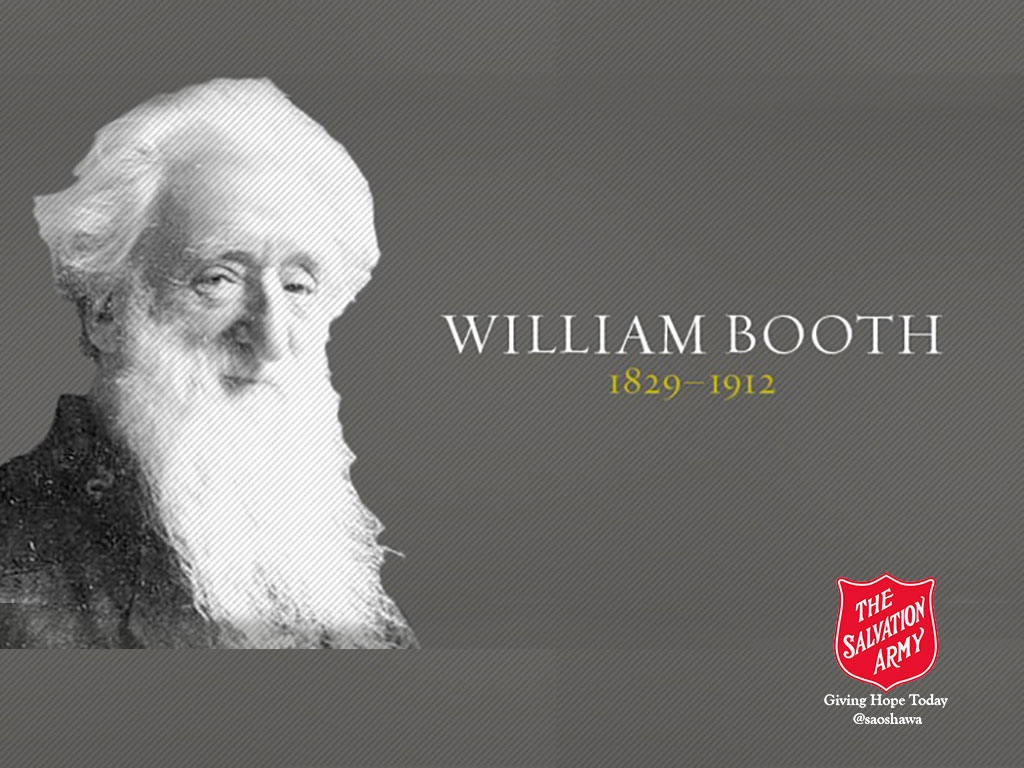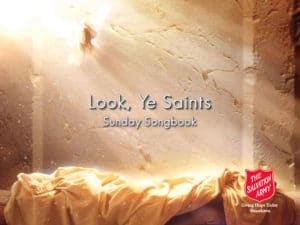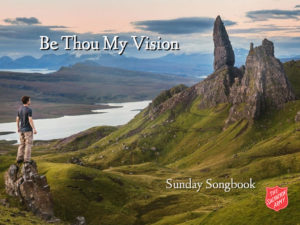East Of London Revival Effort
By William Booth
August 17, 1865
The moral degradation and spiritual destitution of the teeming population of the East of London are subjects with which the Christians of the metropolis are painfully conversant. While many true-hearted and zealous laborers are toiling in the spirit of the Master to stem the mighty tide of iniquity, and to pour the glorious light of the gospel in upon the dense darkness everywhere abounding; and though these efforts are in many instances being remarkably blessed, yet seen these laborers only as a few lone stars, whose light but reveals the surrounding darkness, and the great ocean of sin and misery.
A city missionary, living in this neighborhood, says there are hundreds who need to be taught the existence of a God. At a missionary meeting, held in Spitalfields Chapel, a few days ago, it was stated, that in a radius of one mile and a quarter from that chapel, there is a population of 200,000 persons, 160,000 of whom confessedly never attend any place of worship. What is true of this neighborhood is more or less so of the whole district, statistics showing that more than two-thirds of the working-classes never cross the threshold of church or chapel, but loiter away the Sabbath in idleness, spending it in pleasure-seeking of some kind of money-making traffic. Consequently, tens of thousands are totally ignorant of the gospel; and as they will not attend the means ordinarily used for making known the love of God will no t attend the means ordinarily used for making known the love of God towards them, it is evident that, if they are to be reached, extraordinary means must be employed.
it is evident that, if they are to be reached, extraordinary means must be employed. Share on XAs announced by one or two correspondents to your valuable paper, I have been engaged in an effort in this direction the last six weeks. Invited by Messrs. Stab and Chase, I held a week’s services in a large tent, erected in the Quakers’ burying ground, Thomas-street, Whitechapel; and so evident was the divine approval, that the services have been continued until now. Nearly every night two meetings are held, first in the Mile-end-road, and afterwards in the tent; and on the last two Sabbaths we have conducted four services each day. We have held two very successful tea meetings, charging three-pence each for admission. There have been but two or three meetings of the whole course at which sinners have not professed to find mercy, and sometimes thirteen or fourteen of an evening.
Some of these cases have been especially interesting. One evening, about a fortnight ago, I sat down by the side of a young man whose dress betokened poverty and degradation of the lowest order. I spoke to him of Jesus and the Christian life. He replied most frankly and freely. Among other things, he said, “I promised you last night that I would come again, and I am here, you see. I have been very wicked; I want to be saved. That was a very good parable of the prodigal you gave up there.” I had been comparing the sinner to a young man who had forsaken his father’s house and wandered to Australia, and to whom, in wretchedness, wrong, and ruin, his father had sent a letter, assuring him of continued affection, and urging upon him an immediate return home. “Yes,” he said, with emphasis, “that was a good parable. I am a prodigal. It is twelve years since I left my mother in Edinburgh. I had not heard the gospel for seventeen years until I heard you speaking in the Mileend-road last night. I was then on my way to a house of infamy. It might have been far different with me, but drink and debauchery have been my ruin. I have not done a day’s work in my life; the last twelve years I have spent in brothels and public houses. But I am decided. I have been happy since Sunday.” He has attended nearly every service since.
One morning, as I walked through the city, a man stopped me by offering his hand. I remembered him as one who, among a crowd of men, had listened to me in the Mileend-road the night before. So interested had he appeared, that I had supposed him to be a Christian. But no! It was not so. Once he was united with the Lord’s people; was a local preacher for seventeen years; came up to London as a merchant; neglected to join a Christian church; lost his religion, his property, and all. “And now,” said he, “I am ashamed to tell you how long it is since I was in a place of worship till last night.” “Well,” I said, “you will come again to Jesus, won’t you?” He said, “I will. I went from the meeting last night to fetch my wife to the tent.” He attends our services, and, if not yet restored to the favour of God, I trust he soon will be.
Well, I said, you will come again to Jesus, won't you? Share on XTwo men, each about fifty years of age, came one evening to Jesus together; they both entered into the rest of believing like little children, and went down to their houses justified. One confesses to having been more or less the subject of the striving of the Spirit all his life; he now prays in our meetings with much sweetness, attends every night, and is very useful. The other, who has been much afflicted for some time, said he thought the Lord had healed him body and soul too.
“I want prayer,” said a sister who helps us in the Lord’s work, “for a man who has been one of the bitterest infidels in Bethnal Green. He has been coming to hear you in the Mile-end-road, he was there all through the meeting tonight. I know he is troubled, we have talked to him, and I want you to pray earnestly for him.”
The same evening a letter was put into my hand, in which the writer describes herself as “one of the vilest and worst of sinners, having been living in the depths of sin and wickedness. Oh, how glad would I be I could make myself known to you, to thank you for coming here to preach, but this I cannot do.” The writer then goes on to say that she has been living by dishonest practices, but is now resolved to abandon them, saying further, “It is this that I want to know, whether this will shut me out of heaven. I cannot make the things good, for I am very poor; but oh, I feel I would if I could restore double what I have taken from each one. Oh, sir, do stand dup tonight and say whether it will keep me out of heaven, for it greatly troubles my mind.”
I am determined though I am in want never more to go in the ways of sin Share on XThe following night a little boy put a second letter into my hand, in which the same person, still withholding her name, says, “I write these few lines to tell you I feel that which was on my mind is all removed; I felt last night while sitting in the tent that I could see clearly that the blood of Jesus does cleanse from every sin that we have committed, and bless God, I was led to see that so clearly last night, and beg you to ask the Lord to open a way for me to earn a living, for I have not a friend to help me, but I am determined though I am in want never more to go in the ways of sin. I do thank you for what you said last night, that it was not what we have been that would shut us out of heaven, but that it was because we would not come to Jesus.”
The same evening a sister handed me letter from a person residing at Notting-hill, whom she had invited to the tent on the preceding Sabbath. Among other things the writer said — “It is with great joy and gladness of heart that I write these few words to tell you how thankful I am that my dear friend asked me to come to the tent. While you were inviting poor sinners to come to Christ, it was then I felt myself a sinner in the sight of God, and after you had finished my friend spoke to me of the love of Jesus, and said whosoever believeth on the Son hath everlasting life. I rested on the word, and now I can say that Jesus is mine, and God grant that He may keep me to the end. This text came strongly to my mind today — ‘He that soweth and he that wreath rejoice together,’ for you convinced me of sin, and my friend’s words went home with power, so you must rejoice together.”
I felt myself a sinner in the sight of God Share on XThese are only a few of the many tokens of the divine blessing with which we have been favoured, and which have led the few earnest, loving servants of the Lord who have been my helpers to desire a continuance of the work, and again and again have they urged me to give myself up entirely to the East of London. My own heart has seconded their appeals, for I confess to having grown deeply interested in this mass of humanity. I have therefore consented to do so, and we purpose, God helping us, to devote our little time and energy to this part of the Lord’s vineyard.
What We Propose
We have no very definite plans. We wish to be guided by the Holy Spirit. At present we desire to be able to hold consecutive services for the purpose of bringing souls to Christ in different localities of the East of London every night all the year round.
We propose to hold these meetings in halls, theatres, chapels, tents, openair, and elsewhere, as the way may be opened or we seem likely to attain the end we have in view.
We purpose to watch over and visit personally those brought to Christ, either guiding them to communion with adjacent and sympathetic churches, or ourselves nursing and training them to active labour.
In order to carry on this work, we propose to establish a Christian Revival Association, in which we think a hundred persons will enroll themselves at once. We shall also require some central building in which to hold our more private meetings, and in which to preach the gospel when not engaged in special work elsewhere.
To work out these plans, it will be manifest to each reader of this that funds will be required, and to those whom the Lord has entrusted with means, and who have any sympathy with the perishing thousands for whom this work is organized, we appeal for help. Contributions may be forwarded to the office of The Revival, and will be acknowledged in the same. Asking an interest for our work in the prayers of the reader, I beg to be regarded as your brother in the Lord, William Booth.




